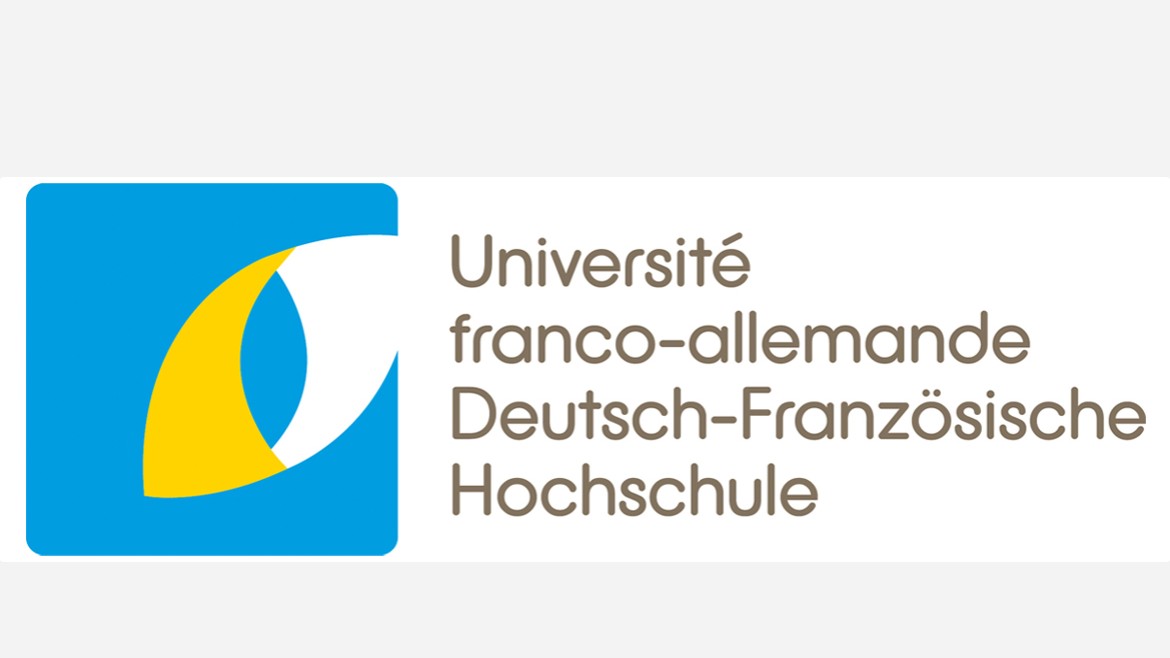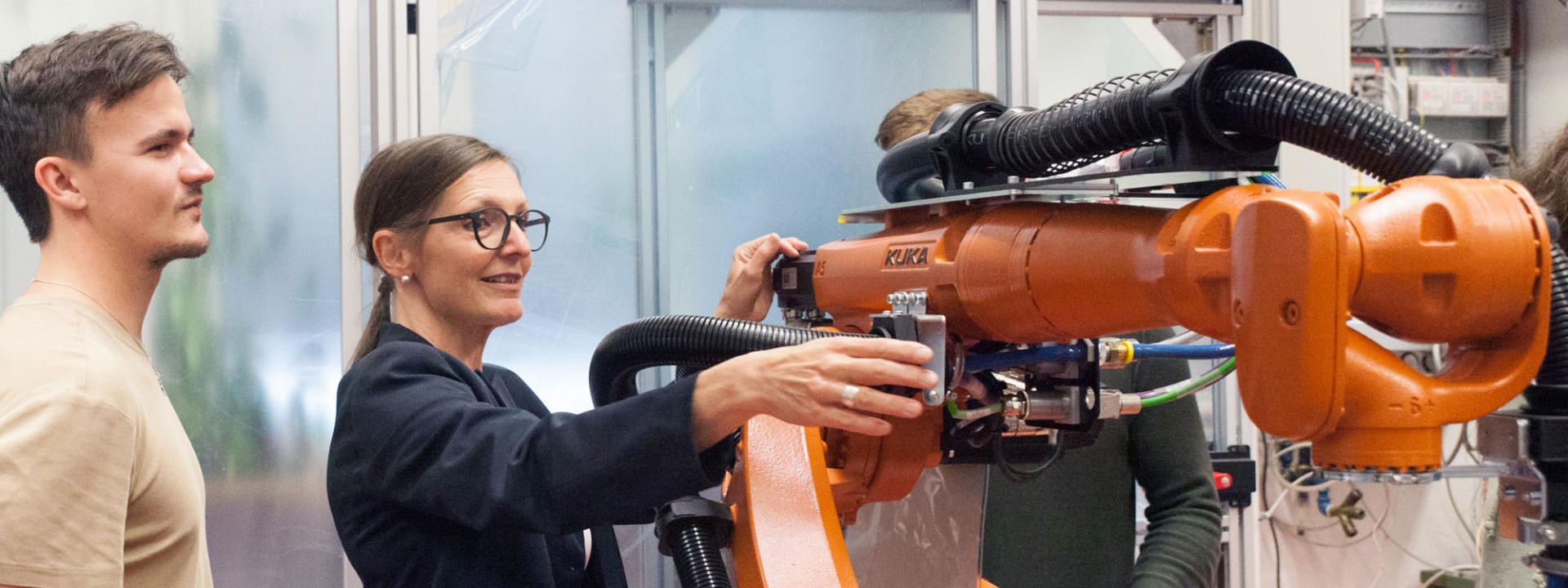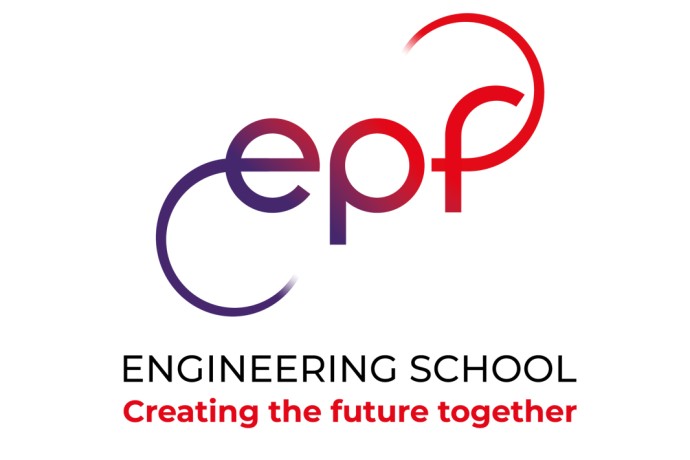Production and Automation (B.Eng. / M.Eng. / Diplôme d´Ingénieurs)
All products of daily life have to be produced. The demand for skilled workers for production, automation and logistics processes is high.
In this video (in German) about the study program Production and Automation you will learn how the program is structured and which contents are taught.
Would you like to know what students have to say about this study program?
In this video from our partner university EPF, students talk about their studies.
This degree course opens up special opportunities. In just ten semesters of study you will acquire
- three degrees (Bachelor of Engineering, Master of Engineering, Diplôme d'Ingénieurs),
- at least two years of experience abroad and
- at least 15 months of practical experience in industrial companies.
This is made possible by the partnership between Munich University of Applied Sciences and the EPF Ecole d'ingénieurs in Sceaux/Paris. Since 1993, these two partner institutions have jointly organized the "Production and Automation" course and since 2006, in accordance with international agreements, as a consecutive Bachelor's and Master's course.
Our partner university EPF in Sceaux/Paris was founded in 1925 as a private university. Since 1993, the EPF has specialized in the implementation and organization of international degree courses. The EPF occupies a very good position in the ranking of the "Grandes Ecoles d'Ingénieurs".
The course has been accredited by both the CTI in France and ASIIN in Germany since 2007.
All everyday products have to be produced, be it airplanes or cars, computers or cell phones, machines or household appliances.
Production engineers plan how these products are manufactured, which production processes are used and what the factories, production lines and workplaces in which many people work look like. They coordinate and control the processes in the factories and are responsible for ensuring that products are manufactured economically and to a high quality, while at the same time keeping employees motivated and healthy in ergonomically designed workplaces. Automation solutions are also frequently used, for example robots that assemble products.
Production engineers work together with many other functional departments in the company. As production companies are often organized in a network of production sites - in Germany as well as in other countries - they also work with colleagues and partners in other countries. "Soft skills such as good communication skills are therefore very important.
The course prepares you for your career. The subject areas of the course are as varied as the job:
- As in all engineering degree courses, you will first learn the basics of natural and engineering sciences such as mathematics and physics, technical mechanics, electrical engineering or design engineering in the foundation course. The focus here is on applying these fundamentals to specific production tasks.
- In the subject area of production, you will learn how to select the right manufacturing processes for a specific product and how to design the associated production systems (from individual production cells to production lines and entire factories). This includes the layout, i.e. the spatial arrangement, as well as organizational aspects such as production control.
- Supply chain/logistics is an important success factor for production companies and you will learn how to plan and optimize material flows with suppliers and customers as well as material flows within the plant.
- With regard to automation, you will learn how to select the components of an automated cell (such as robots, sensors or grippers) and how to integrate them into automated systems. This includes programming the robots.
- Information technology also plays an important role in your career and studies. You will learn to use CAD systems (computer-aided design) to create 2D and 3D models of products and production facilities, to simulate loads and deformations in so-called FEM systems (finite element method) and to use software for controlling and monitoring production processes.
- Aspects of economic efficiency affect all areas of production. You will therefore also acquire business management skills, for example you will learn to apply various cost accounting methods to evaluate concepts in terms of their production costs. You will also learn how to work with budgets and apply various management methods relevant to production.
- In order to develop the necessary soft skills, you will work on a variety of project tasks in student teams and learn how to represent your point of view in the group and present results in a structured and understandable way.
- Languages and intercultural skills are a further focus of the course to enable you to operate successfully in international production networks later on. You will learn to express yourself in German, French and English and to conduct negotiations. You will learn to understand and respect the differences between different cultures and to work successfully in international teams.
The program is a consecutive Bachelor's and Master's degree course.
Students from the two partner universities (EPF, Ecole d'Ingénieurs in Sceaux Paris and Munich University of Applied Sciences) begin their studies at their "home university".
In the 2nd year of study, the French students come to Munich. From this point onwards, the entire group of German and French students study together, alternating between Munich and Paris each year. During their stay at the EPF, the German students receive a place in a student residence and a mobility allowance from the Franco-German University (DFH).
During the first two years, students are prepared for their studies in France in language courses.
The course comprises a six-month industrial internship, divided into two internships, one in a German company and one in a French company. The Bachelor's and Master's theses are also completed in industrial companies, meaning that 15 months of industrial experience are gained during the course of the degree.

The course is sponsored by the DFH. The DFH brings together all Franco-German degree courses under one roof and promotes cooperation between universities in France and Germany both organizationally and financially. This results in the following advantages for the universities and students:
- Enrollment of students at the Franco-German University (DFH)
- Financial support for students for language courses
- Financial support for the universities for operational implementation
- Scholarship of €300/month per student for the duration of their stay at the EPF (does not count towards Bafög)
- DFH certificate upon successful completion of studies
- Support for setting up and maintaining an alumni network
Further Information: www.dfh-ufa.org
You can find all the information you need about enrolling and completing your application at the Enrollment Office of the
Hochschule München.
Telephone: 089/1265-5000
E-mail address: immatrikulation@hm.edu
Requirements for the study at the Munich University of Applied Sciences are:
Advanced technical college certificate or the general or specific higher education entrance qualification (preferably with a concentration in the natural sciences or technical fields of study). You can find more detailed information on this at: www.hm.edu/bewerberinfo
These further personality characteristics are important:
- Interest in questions relevant to the natural sciences and technology
- Willingness to work in interdisciplinary fields
- Comprehension of complex relationships
- Curiosity about the unknown, the new, the untried
- Flexibility

